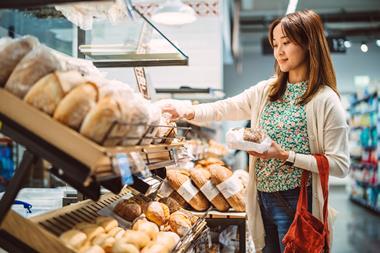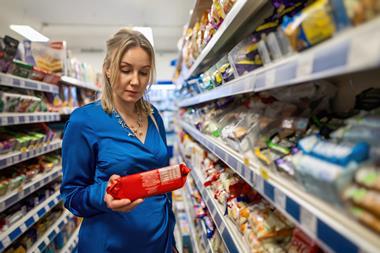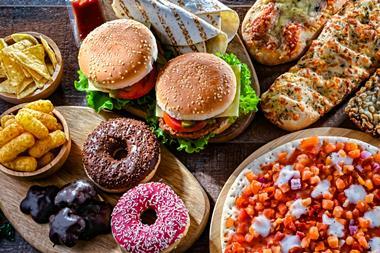Businesses and manufacturers will pay the full cost of recycling or disposal of their packaging waste under proposals unveiled by the government today (December 18).
The move forms part of the government’s new Resources and Waste Strategy which also seeks to eradicate avoidable plastic waste and simplify household recycling systems. A consultation on increasing the 5p plastic bag charge to 10p, and extending it to small retailers, is also to be launched.
“We will cut our reliance on single-use plastics, end confusion over household recycling, tackle the problem of packaging by making polluters pay, and end the economic, environmental and moral scandal that is food waste,” said environment secretary Michael Gove.
As packaging is the “immediate priority”, the government is to launch a consultation on packaging waste regulations with the intention to legislate by 2021 and have reforms in operation by 2023.
At present, packaging producers (raw material manufacturers, converters, pack-fillers, sellers and importers) are obligated to meet a share of the annual recycling targets via the purchase of packaging waste recovery notes (PRNs). However, the document notes that this system favours the export of packaging waste for recycling and lacks transparency.
“The current system, however, does not sufficiently incentivise design for greater reuse or recyclability and less than a tenth of the costs of managing household packaging waste is covered by producers. Our reforms will change this, and the full net costs will be covered,” the document states.
Under the reform, the government says its hopes to ensure:
- Measures incentivise the reduction of unnecessary and difficult to recycle packaging, the production of packaging that can be recycled, and the recycling of packaging back into the same or similar products provided there is no conflict with other policies such as food hygiene requirements.
- Producers fund the management of packaging at the end of its life. Subject to consultation, this may include: collection, recycling, disposal, reduction of littering and fly-tipping, communications, data collection and reporting, compliance monitoring and enforcement.
- Collection of a nationally agreed set of packaging materials for recycling, adoption of minimum service standards and delivery of good quality recyclate.
- It is easier for consumers to know what packaging they can recycle through the adoption of mandatory labelling on packaging and improved communications (funded by producers).
The strategy also looks to reduce food waste and states that “food companies must do more to make their supply chains more efficient, and prevent food waste from happening in the first place”.
As part of this, the government will set up a pilot scheme, supported by a £15m fund. Launching in 2019, it will be developed in collaboration with businesses and charities.
In addition, it will be consulting on annual reporting of food surplus and waste by food businesses.
This will tie in with the work outlined by the Food Waste Reduction Roadmap which was published in September 2018. So far 89 companies – including bakery giants Hovis, Warburtons and Premier Foods – have pledged to halve food waste by 2030 as part of the roadmap.
































No comments yet